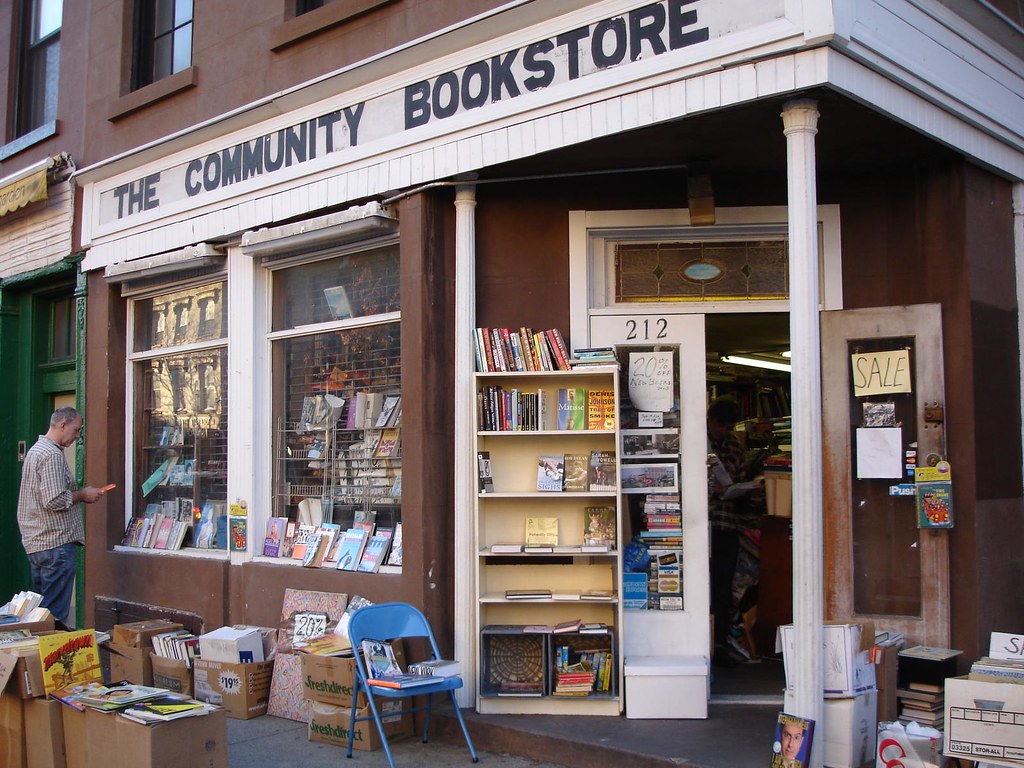Reading Lists
9 Books by Adventurous Women about the Great Outdoors
Jan Redford, author of “End of the Rope,” recommends books that subvert the masculine wilderness genre

Since the publication of my book this spring, I’ve often been asked why I became a climber. It does seem an unlikely passion for anyone, let alone an ordinary, middle class girl growing up in the 70s amongst flat cornfields, not mountains. My role models were certainly not climbers, skiers, and mountain bikers, they were housewives who’d abandoned their own dreams to raise kids in the suburbs and men who headed to the city every morning with a briefcase. A walk around the block with the dog was the extent of the adults’ physical exertion. But when I was thirteen, I met a climber at an outdoor camp and I was instantly smitten. I wanted to marry him, but more urgent was my desire to be him. He bulged with muscles and confidence, seemingly the ultimate master of his own body, mind, and even fate. Coming from an unpredictable home with high alcohol content, I craved control. I wrote in my journal, “I’m going to be a mountain climber when I grow up,” and against all odds, that’s exactly what I did. At nineteen, I threw myself into the nomadic life of a rock climber. And so began my life of adventures, most of them more fun to write about than to live through.
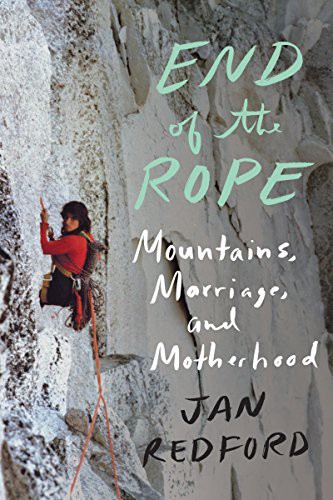
My memoir, End of the Rope: Mountains, Marriage, and Motherhood, is about coming to the end of my rope literally in the mountains and figuratively in my relationships over and over: getting rescued off El Capitan in Yosemite, going under sweepers on a river in my kayak, losing my boyfriend to an avalanche, getting pregnant unexpectedly, and then, just like my mother, finding myself in a tumultuous, unhappy marriage. I so desperately wanted to be the “master of my fate, the captain of my soul,” but my chaotic childhood had created too much internal chaos and self-doubt. I trusted others, namely men, over my own intuition.
Eventually, it was strong female role models who showed me I could have a fulfilling life of my own making: women who were leading in the mountains, becoming certified guides, continuing to climb and follow careers after becoming mothers. And eventually, what I’d learned in the mountains myself–moving through fear, staying with the discomfort, committing, really knowing on a cellular level that no one could swoop in and save me–eventually kicked in, almost as though those skills were a mind and muscle memory. I filled a U-Haul, left my marriage and my mountain town with my two young kids, to follow my dream of university and self-reliance.
A few years ago I was on a panel in Banff called, A Summit of One’s Own, where we discussed women’s presence in mountain films and literature. To prepare, I went to the library to take out books by outdoorsy women. In the mountain section I counted 107 books by men and five by women. Later in my research I stumbled across the expression, “If you can’t see her, you can’t be her.”
So here is my list of books to add to those five I found at the library. These are not stories of chest-pounding exploits; each woman’s psychological and emotional journey is woven through the adventures. They are honest, vulnerable stories of fear, grief, resilience, joy, perseverance, and above all, the refusal to stay within bounds.

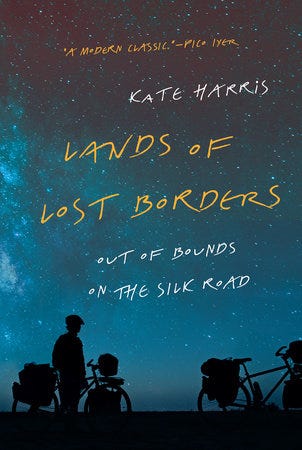
Lands of Lost Borders: Out of Bounds on the Silk Road by Kate Harris
The beauty of this book is that you can read about Kate and Mel’s account of cycling the fabled Silk Road for ten months in rain, snow and sleet, sleeping in a tent, and eating instant ramen noodles, and it’s almost as though you’re experiencing every jarring pothole and starry night with them because the writing is so stellar (which means you’ll never have to do it yourself!) This book has made it to a few bestsellers’s lists since hitting the shelves early this year for good reason: these two are true modern-day explorers.

Pure Land: A True Story of Three Lives, Three Cultures, and the Search for Heaven on Earth by Annette McGivney
McGivney, a master literary journalist, beautifully weaves her own story through her account of the murder of a young adventurous Japanese woman at the hands of a displaced, tormented Havasupai youth at the bottom of the Grand Canyon. Tomomi’s life and death and a mutual love of nature led the author back to her true self. “The farther I walked into the woods, and the wilder my surroundings got, the safer I felt and the more it fed my soul. …Nature loved me. Nature loved Tomomi. This was the bond, the secret, healing handshake…”
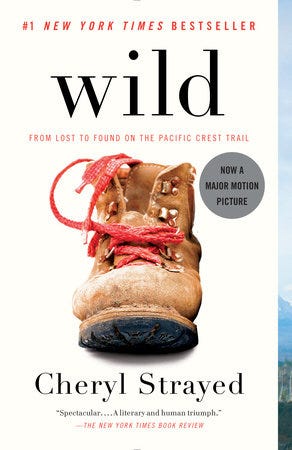
Wild: From Lost to Found on the Pacific Crest Trail by Cheryl Strayed
I’ve heard comments from a few hardcore mountain folk that Strayed should never have ventured out into the wilderness alone for months, emotionally trainwrecked as she was, with absolutely no hiking experience, a ridiculously heavy pack, ill-fitting boots, and at one point, only one boot! But that’s the beauty of this book. Everything was against her and she did it anyway. When I was thirteen, if I’d believed I couldn’t be a climber just because I’d never climbed, had only met one climber, had barely seen a mountain, and whined whenever I had to jog more than half a mile in gym class, I would never collected enough calamities to fill a memoir.
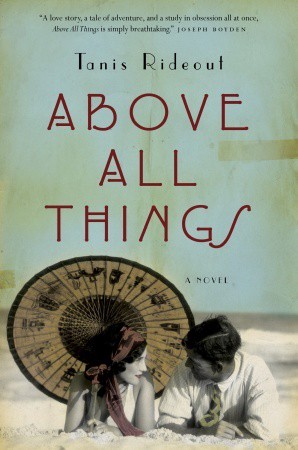
Above All Things by Tanis Rideout
This enthralling, fast-paced and well-researched novel alternates back and forth between the stories of two people: George Mallory, as he attempted to be the first man on Everest, and his wife, Ruth, who waits at home in England with the children, not knowing whether she’ll ever see her husband again. I’ve been in Ruth’s situation, waiting at home for a man who also didn’t return from his mountain. And I’ve also been the climber. Rideout captures both points of view on a very accurate, deep level.

Where the Mountain Casts Its Shadow: The Dark Side of Adventure by Maria Coffey
Maria Coffey is another woman who lost her boyfriend to the mountains. Joe Tasker died on Everest in 1982, and Coffey’s memoir about her loss, Fragile Edge: A Personal Portrait of Loss on Everest, helped me through my own grief. This more recent book explores the impact of deaths in the mountains on the people left behind. Talking about fear, death, and guilt are not climbers’ fortes (there’s even a chapter called Masters of Denial) so this book is a brave one and a tad controversial in the mountain community.

Cowboys Are My Weakness by Pam Houston
These are the first stories I ever read by a woman about a woman in the mountains. The narrators are strong, active women who get into dangerous pickles in the mountains and fall for guys with an edge, which all sounds terribly familiar. I’ve long wished I’d nabbed the title first, with a bit of a tweak: Climbers Are My Weakness.

Wild Fierce Life: Dangerous Moments on the Outer Coast by Joanna Streetly
Streetly weaves stories of her adventures guiding multi-day wilderness kayak trips in the remote wilderness on the west coast of Vancouver Island with personal, intimate glimpses into her disintegrating relationship with a First Nations man, and her attempt to balance motherhood with her longing for the wilderness. Her near-death adventures, including encounters with cougars and bears, “opened previously uncharted regions of myself.” Whenever I encounter a bear on the trails behind my house in Squamish, Canada, my language is not nearly as poetic.
Cabin Creek by Madeline ffitch
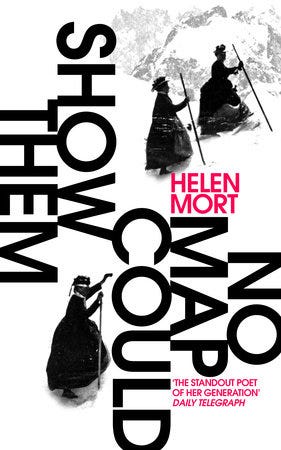
No Map Could Show Them by Helen Mort
This is a strong collection of mountain poetry. My favorites are about the rebellious women climbers of the Victorian era who used to ditch their fashionable shoes and long skirts behind a rock on the approach, and don woolen knickers and boots to climb their mountains: “Take off the clothes they want to keep you in. The shadow of the hill undresses you. The sky will be your broad-rimmed hat.” Mort’s humor shines in poems like “Ode to Bob,” the nickname women gave to the “mansplaining” men they didn’t have to climb with when they climbed with each other. “He never steals the morning with a story of a pitch he climbed one-handed, wearing boxing gloves…”

Tracks: One Woman’s Journey Across 1,700 Miles of Australian Outback by Robyn Davidson
The movie is great, but the book gives more of Davidson’s voice. In the postscript, she explains why she had to do her perilous journey alone across the outback of Australia to the sea in 1977: “…nothing was as important as freedom. The freedom to make up your own mind, to make yourself. And such aspirations inevitably involved risk, unleashing opportunities for learning, discovering and becoming.” These words are thrumming with the restlessness and rebellion I felt in my twenties, the refusal to conform to societal and familial expectations of women. They sum up why I am drawn to the mountains and express the main message I hope I’ve gotten across in my own memoir: “Don’t wait for permission. For anything. Especially not to grow and learn and follow your dreams.”

About the Author
Jan Redford is a graduate of The Writer’s Studio at SFU and holds a master’s in creative writing from UBC. Her stories, articles, and personal essays have been published in the Globe and Mail, National Post, Mountain Life, Explore, and anthologies and have won or been shortlisted in several writing contests. She lives with her family in Squamish, BC, where she mountain bikes, trail runs, climbs, and skis. Her memoir, End of the Rope: Mountains, Marriage, and Motherhood is her first book.






